
Hun Sen Wins Another One-Horse Race In Cambodia
Cambodia looks set to remain a one-party state as the country's long-ruling party is expected to have won the vast majority of commune positions at Sunday's election.
With more than 70% of the ballots tallied at the time of writing, Prime Minister Hun Sen's ruling Cambodian People's People (CPP) had won all but three of the 820 commune chief posts with more than 70% of the popular vote. The party had most likely won the majority of the less powerful commune councilors' posts as well.
The largest share of the popular vote the CPP ever won at local elections was in 2012, when it took 61.8%. Cambodians went to the polls on Sunday for the fifth iteration of local elections to select 1,652 commune chiefs and 11,622 commune councilors.
“The results of the election are not surprising,” said Kimkong Heng, a visiting senior research fellow at the Cambodia Development Center.
The opposition Candlelight Party, which only resumed activities in October after years of hiatus, won about 22% of the popular vote, despite so far winning only three commune chief posts, according to an incomplete count of the vote.
The election had been marred by alleged irregularities. The UN human rights agency stated there had been a pattern of“threats, intimidation and obstruction targeting opposition candidates” in the run-up to the election.
The Asian Network for Free Elections (ANFREL) warned:“The undemocratic elements in the current legal framework continue to allow room for abuse, leading to a repressed civic space and a hindrance to a free and fair election environment.”
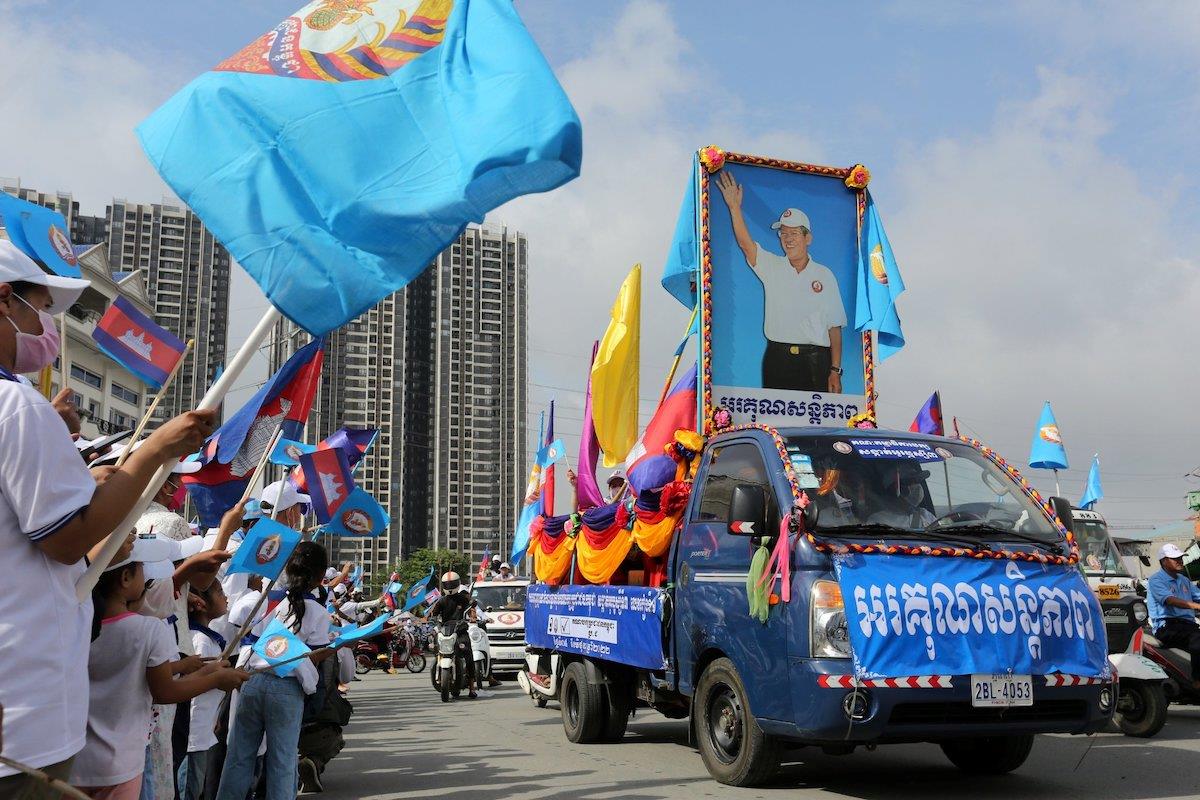
Election fever grips Phnom Penh as CPP supporters parade through the streets. Photo: Facebook
On election day, there were widespread reports of intimidation and harassment. Ballot stations were reportedly closed early or many had a hefty police presence. Election officials blamed this on heavy rain.
Cambodian politics was upended in 2017 when the country's largest opposition party, the Cambodia National Rescue Party (CNRP), was dissolved by the Supreme Court on the spurious charge of plotting a US-backed coup.
All its elected officials were barred from office and many fled the country. Kem Sokha, its president at the time, was arrested and charged with treason.
At the 2017 local elections, the CNRP won 43% of the popular vote and 489 of the 1,646 commune chief posts up for grabs. It was this achievement – denting the CPP's monopoly on commune positions for the first time since local elections started in 2002 – that led to the CNRP being banned only months later.
Many believe the CNRP could have gone on to win the 2018 general election had it been allowed to run. Instead, the CPP won all 125 seats in parliament in that year's ballot. Cambodia's relationship with the United States and the European Union, its two main export partners, has deteriorated considerably ever since due to the anti-democratic backsliding.
In 2020, the EU partially revoked Cambodia's trade privileges.
Voter turnout at Sunday's election was about 78% according to the National Election Committee (NEC), which also dismissed accusations of widespread irregularities and said the ballot“went smoothly and without violence.” Eight of the nine NEC members have ties with the CPP.
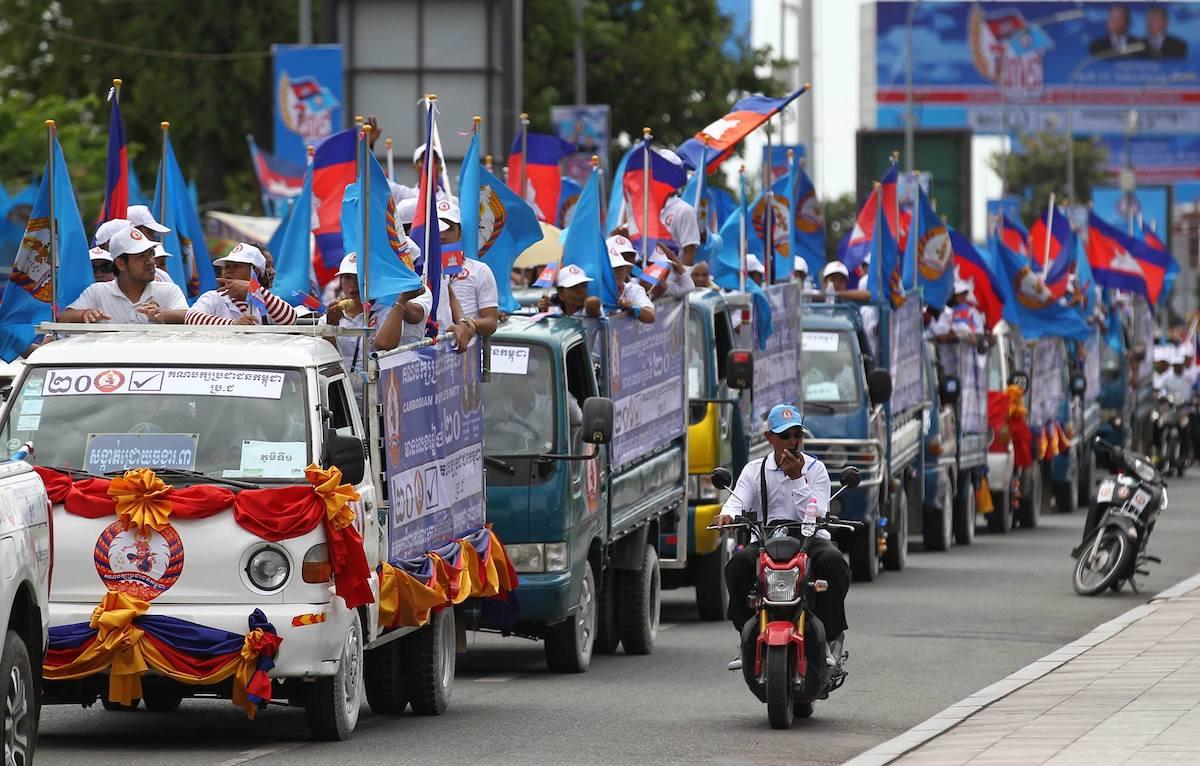
Ruling party supporters took to the streets all over the country in the lead-up to last weekend's local elections. Photo: Facebook CPP clean sweep
The CPP, which has been in power since 1979, will enjoy a monopoly of political offices, continuing Cambodia's descent into effectively a one-party state that started in 2017. It controls all 125 seats in the National Assembly and all but four seats in the Senate.
It is now expected to retain control of all but a handful of commune chief posts, which it has done since 2017 when the CNRP's elected officials were barred from office after the party's dissolution.
“According to our estimate, candidates from the Cambodian People's Party will be elected to be the commune chiefs in at least 99% of the 1,652 communes contested in yesterday's election,” CPP spokesman Sok Eysan told local media on Monday morning.
“I can say that the opposition will get seats in 10 communes or so,” he added.
The CPP government has come out of the Covid-19 pandemic with renewed popularity. Cambodia has one of the lowest rates of deaths per capita in Southeast Asia and was the stand-out performer in Asia for vaccinations.
After an economic contraction in 2020, GDP is expected to grow by about 5% this year, one of the highest forecasts of any Southeast Asian country.
The expected sweep of commune posts by the CPP will set the ruling party up for a relatively easy run at next year's general election, which will likely take place in July 2023.
Hun Sen has vowed to remain in office until 2028, but recently his dynastic succession plans have gained steam.
In December, the CPP voted to accept Hun Manet, his eldest son, as the party's next prime ministerial candidate. Manet is now the de-facto military chief and heads many of the ruling party's organs, including its youth wing.
Analysts expect Manet to run for parliament at next year's election and then be made a cabinet minister, likely the next defense minister. He will then gradually assume his father's political responsibilities.
Last weekend's local election results will assure the CPP that the electorate won't throw up any surprises during this transition period.
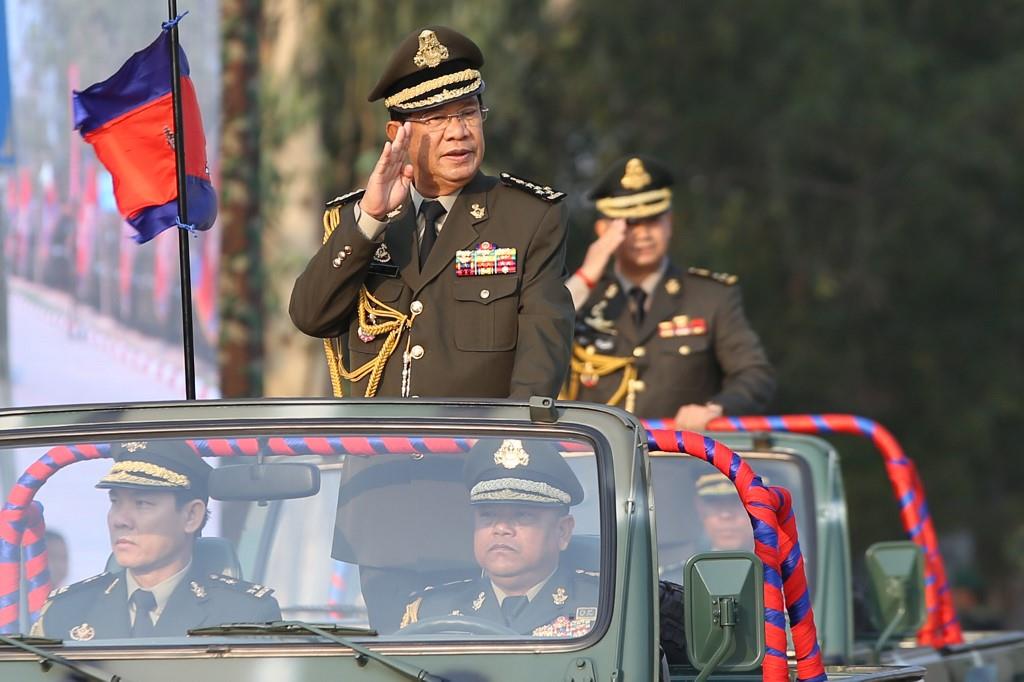
Cambodian Prime Minister Hun Sen, left, with his son and possible successor, Lieutenant General Hun Manet, a senior commander in the armed forces, during an inspection of troops in Phnom Penh. Photo: AFP An opposition resurgence?
Analysts are now starting to debate whether the opposition Candlelight Party can claim any success from the commune elections.
Formerly known as the Sam Rainsy Party, eponymously named after Cambodia's main opposition leader dating back to the 1990s, it only restarted its political activities last October.
It fielded candidates in all but a few of the country's 1,652 communes, making it by far the second-largest party going into the ballot.
Based on current reports, 77.9% of eligible voters cast a ballot.“At least it wasn't 101%,” says Sophal Ear, associate dean and associate professor in the Thunderbird School of Global Management at Arizona State University.
“With numbers like these, I would not expect anything remotely competitive for the opposition,” he added.“At the last commune election, [the CNRP] won 40% of the vote, which was the nail in the coffin for them. It was too much for the ruling party to bear.
“I believe that if the Candlelight Party is allowed to have 10% of the vote, it will be a step forward for transparency and accountability.”
The Candlelight Party will probably win between 10% and 20% of the popular vote, although it is expected to take only a handful of commune chief positions and, perhaps, a larger share of the less-powerful commune councilor positions.
For some, this is a success. Sam Rainsy, who has actively sought to distance himself from any direct involvement with the party, was optimistic.
“The first results of the commune elections of June 5 show that a people's desire for change can't be wiped out at the stroke of a pen,” he wrote on social media on Sunday.
“After the arbitrary dissolution in 2017 of the CNRP as the only credible opposition party, and despite the continuous atmosphere of fear and intimidation in Cambodia, hope for democratic change at the ballot box has been revived by the Candlelight Party,” he added.
“Despite the many obstacles put in front of it, the CP has achieved a remarkable score in the context of a 'paralyzing environment' for the opposition in Cambodia, as noted by the United Nations Human Rights Office.”
In the weeks running up to the election, a dominant narrative had been that the Candlelight Party could shake up the CPP. However, no one expected it to win, or even come close to the ruling party's seat count.
The 43% of the popular vote won by the CNRP in 2017 was unlikely. However, at the 2012 local election, the Sam Rainsy Party, as the Candlelight Party was then known, won 20.8% of the vote and 22 of the 1,633 commune chief posts.
If it can achieve about 20% of the overall vote this time around, that would be an accomplishment for the party. However, its ability to affect change will be minimal. Its handful of commune chiefs will be thwarted by authorities.
There is also the threat of dissolution. Because of changes to the law a few years ago, any party formally associated with a convicted criminal can be automatically banned. Rainsy has numerous trumped-up criminal convictions to his name and a Cambodian court would not object if authorities claimed there was a direct link.
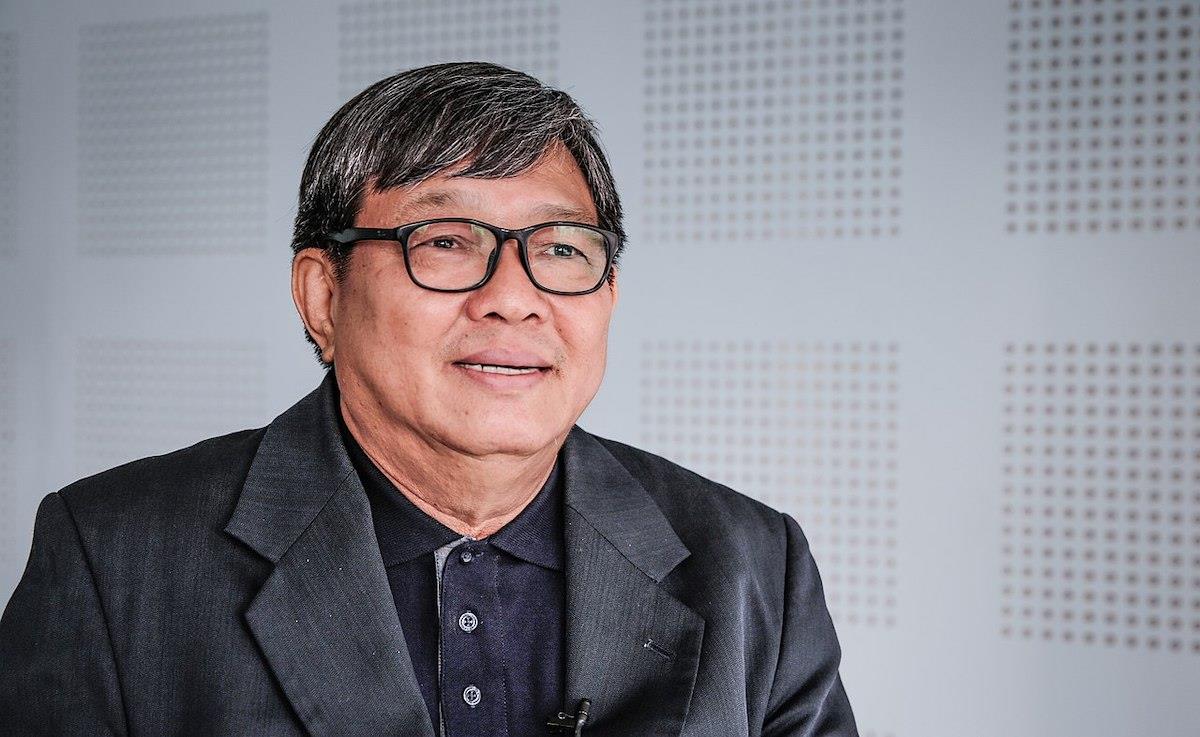
Son Chhay, the leader of the Candlelight Party, has been a fixture in Cambodian politics since 1993. A member of the now-dissolved opposition Cambodia National Rescue Party, or CNRP, he opted to remain when other party leaders fled the country. Photo: WikiCommons
Rainsy, who is now in exile, has actively distanced himself from the party, which is officially led by veteran politician Son Chhay.
The Candlelight Party's resumption of political activities last year was controversial. In 2012, the Sam Rainsy Party and Kem Sokha's Human Rights Party were supposed to have“merged” to form the CNRP, although both composite parties continued to operate.
Kem Sokha, who is still waiting for a verdict on his treason trial, publicly lashed out against Rainsy late last year for allegedly breaking the CNRP pact with the Candlelight Party's resumption. Rainsy asserts he played no part in this. Sokha and his faction of the CNRP remain hostile.
The fact that the Candelight Party didn't achieve anything close to the 43% won by the CNRP in 2017 reflects the impact of the dissolution of the CNRP and the split between Sam Rainsy and Kem Sokha, which“has left CNRP supporters with no choice, hope or direction,” said Heng, the analyst.
“Some of them might have cast their vote for the CPP, given that there is no other better option,” he added.
On Sunday, Sokha's aide, Muth Chantha, told the government mouthpiece Fresh News that the CNRP president wouldn't vote in the election due to not seeing any viable party to vote for.
“The fact that Kem Sokha refused to go to vote tells us that the Candlelight Party does not carry the spirit of the CNRP and that the outlook for the Sam Rainsy-Kem Sokha alliance is really grim,” Heng said.
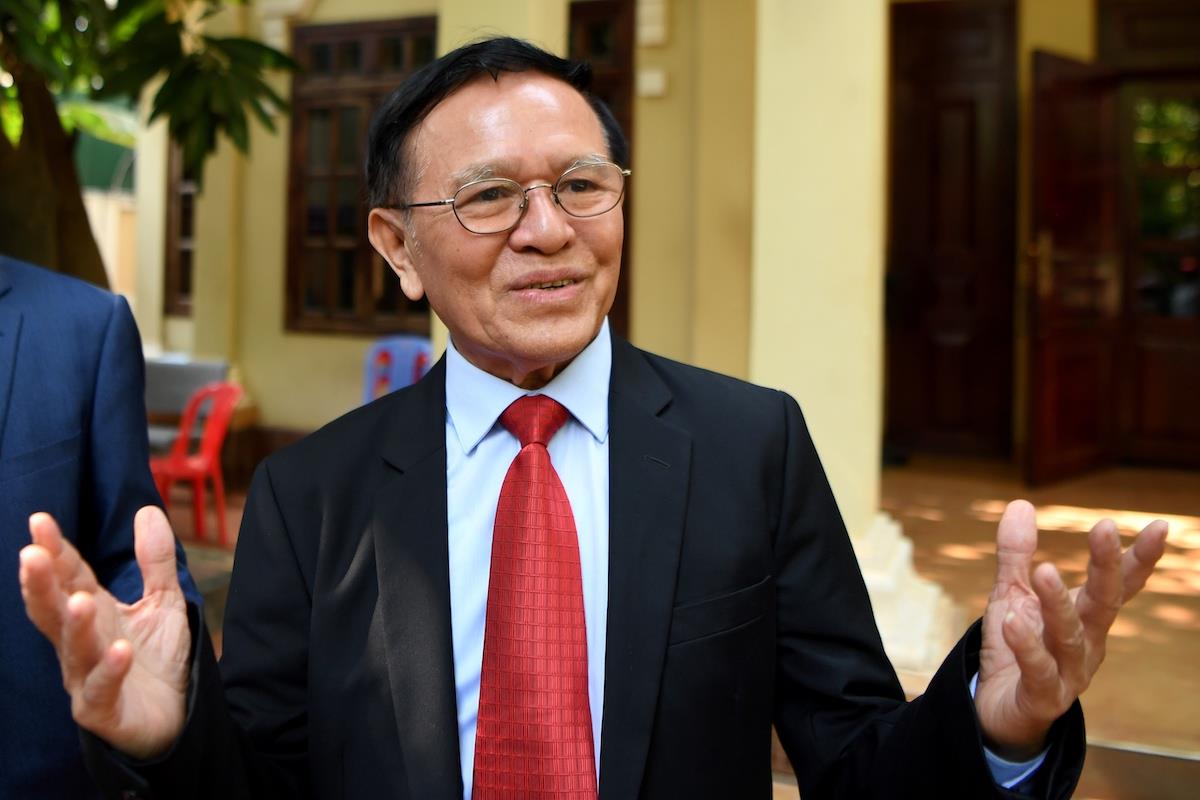
Leading Cambodian opposition figure Kem Sokha has been under house arrest since being released from prison and is playing a long game against Prime Minister Hun Sen. Photo: AFP Scant electoral choice
Another outcome, which proves a longer trend, is that Cambodians dislike the vast majority of the political parties on offer.
At the 2002, 2007 and 2012 local elections, the third-placed party won at least 8% of the vote – and in 2002 it took 16.9%. What happened after the foundation of the CNRP in 2012, however, was that Cambodia became a two-party system.
At the 2013 general election, the third-placed Funcinpec party won only 3.6% of the vote. For the first time, MPs from only two parties entered parliament. At the 2017 local elections, third-placed Funcinpec took just 1.9% of the vote.
It appears that this two-way split – between the CPP representing the status-quo and a Rainsy-associated party representing change – will continue. Funcinpec and the Khmer National United Party, a splinter group, are now on about 1% of the vote share after Sunday's ballot, according to incomplete counts.
“I think the result of the election is a good start for Cambodia,” said Sam Seun, an analyst at the Royal Academy of Cambodia, adding that it's positive the Candelight Party will hold some communes.
“The CPP's commune chiefs will be more cautious after this election,” he speculated. “This is just the test for the CPP and Candlelight Party. The general election is their strong and real ambition.”
Much remains to be decided between now and next year's general election. A court will likely rule soon over Kem Sokha's treason trial. If he agrees to exit politics in return for a royal pardon, that will effectively destroy the CNRP, but make the Candlelight Party the only effective opposition heading into the general election.
Depending on how it plays things, the Candlelight Party could stand a chance of gaining seats in parliament at next year's ballot, resetting Cambodian politics circa 2012.
However, more probable is that the authorities try to dampen the opposition's revival. The Candlelight Party's dissolution isn't unlikely. Kem Sokha could be pressured to reform the CNRP without Rainsy or restart his Human Rights Party, further splitting the opposition camp.
As for the CPP, it will now laud the result as approval for its handling of the pandemic and the public's apparent trust in the party. It has now had its highest-ever vote share at a general election, in 2018, and at a local election, last weekend, which the party will claim as a sign of its political successes – and not the result of its political chokehold.
However, one unknown so far is how the US and EU will react. In May, the European Parliament warned that Cambodia could lose all its trade privileges if the balloting was not free and fair.
Hun Sen subsequently claimed that he doesn't care if Brussels ends all of Cambodia's EBA privileges.
Follow David Hutt on Twitter at @davidhuttjourno

Legal Disclaimer:
MENAFN provides the
information “as is” without warranty of any kind. We do not accept
any responsibility or liability for the accuracy, content, images,
videos, licenses, completeness, legality, or reliability of the information
contained in this article. If you have any complaints or copyright
issues related to this article, kindly contact the provider above.

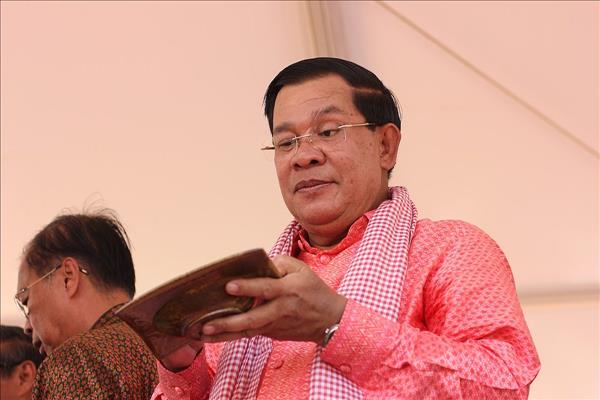
















Comments
No comment